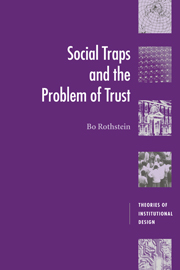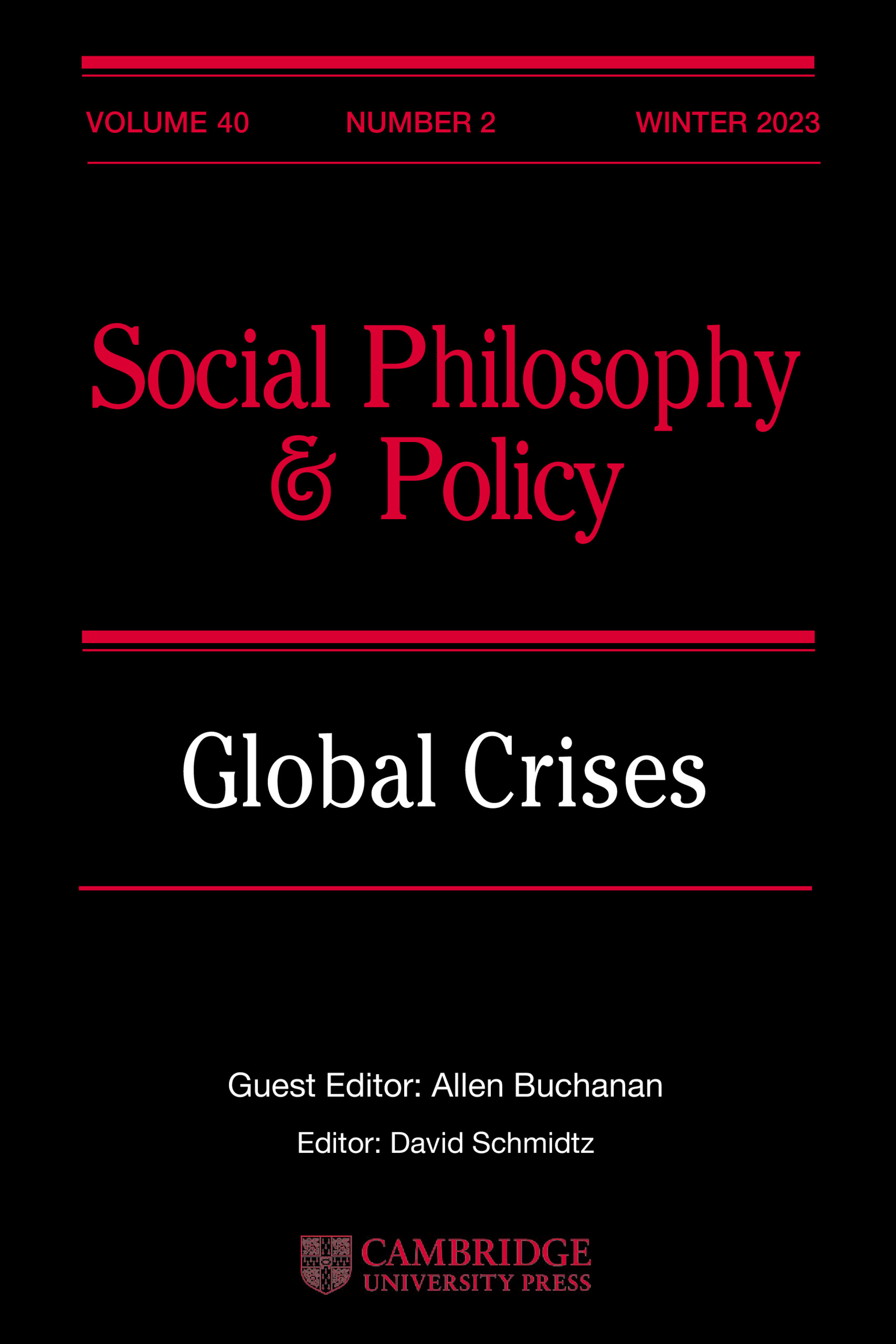
Social Traps and the Problem of Trust
£90.00
Part of Theories of Institutional Design
- Author: Bo Rothstein, Göteborgs Universitet, Sweden
- Date Published: October 2005
- availability: Available
- format: Hardback
- isbn: 9780521848299
£
90.00
Hardback
Other available formats:
Paperback, eBook
Looking for an inspection copy?
This title is not currently available on inspection
-
A 'social trap' is a situation where individuals, groups or organisations are unable to cooperate owing to mutual distrust and lack of social capital, even where cooperation would benefit all. Examples include civil strife, pervasive corruption, ethnic discrimination, depletion of natural resources and misuse of social insurance systems. Much has been written attempting to explain the problem, but rather less material is available on how to escape it. In this book, Bo Rothstein explores how social capital and social trust are generated and what governments can do about it. He argues that it is the existence of universal and impartial political institutions together with public policies which enhance social and economic equality that creates social capital. By introducing the theory of collective memory into the discussion, Rothstein makes an empirical and theoretical claim for how universal institutions can be established.
Read more- Explores the variation in corruption, civil strife, welfare and social trust among countries
- Examines how social capital and social trust are generated and what governments are doing about it
- Presents a theory on how the causal mechanisms between trust in political institutions and trust in other people work
Reviews & endorsements
'This book should be required reading for doctoral programs across the full array of the social sciences. … [This] book presents a nuanced theoretical argument that focuses on context and history of complex, cultural settings where choices are made by subjectively rational individuals within institutions that enhance or detract from the existence of trust among the participants over time. … [This] reader has gained immensely from two close readings of the book and intends to assign it to her next graduate seminar. Thus, I can recommend the book broadly to the readers of this journal.' Elinor Ostrom, Political Psychology
Customer reviews
Not yet reviewed
Be the first to review
Review was not posted due to profanity
×Product details
- Date Published: October 2005
- format: Hardback
- isbn: 9780521848299
- length: 258 pages
- dimensions: 229 x 152 x 19 mm
- weight: 0.55kg
- contains: 6 tables
- availability: Available
Table of Contents
1. Reflections after a very long day in Moscow
2. On the rational choice of culture
3. On the theory and practice of social capital
4. Social capital in the social democratic welfare state
5. How is social capital produced?
6. The problem of institutional credibility
7. Trust and collective memories
8. The transition from mistrust to trust
9. The conditions of trust and the capacity of dialogue.
Sorry, this resource is locked
Please register or sign in to request access. If you are having problems accessing these resources please email [email protected]
Register Sign in» Proceed
You are now leaving the Cambridge University Press website. Your eBook purchase and download will be completed by our partner www.ebooks.com. Please see the permission section of the www.ebooks.com catalogue page for details of the print & copy limits on our eBooks.
Continue ×Are you sure you want to delete your account?
This cannot be undone.
Thank you for your feedback which will help us improve our service.
If you requested a response, we will make sure to get back to you shortly.
×








